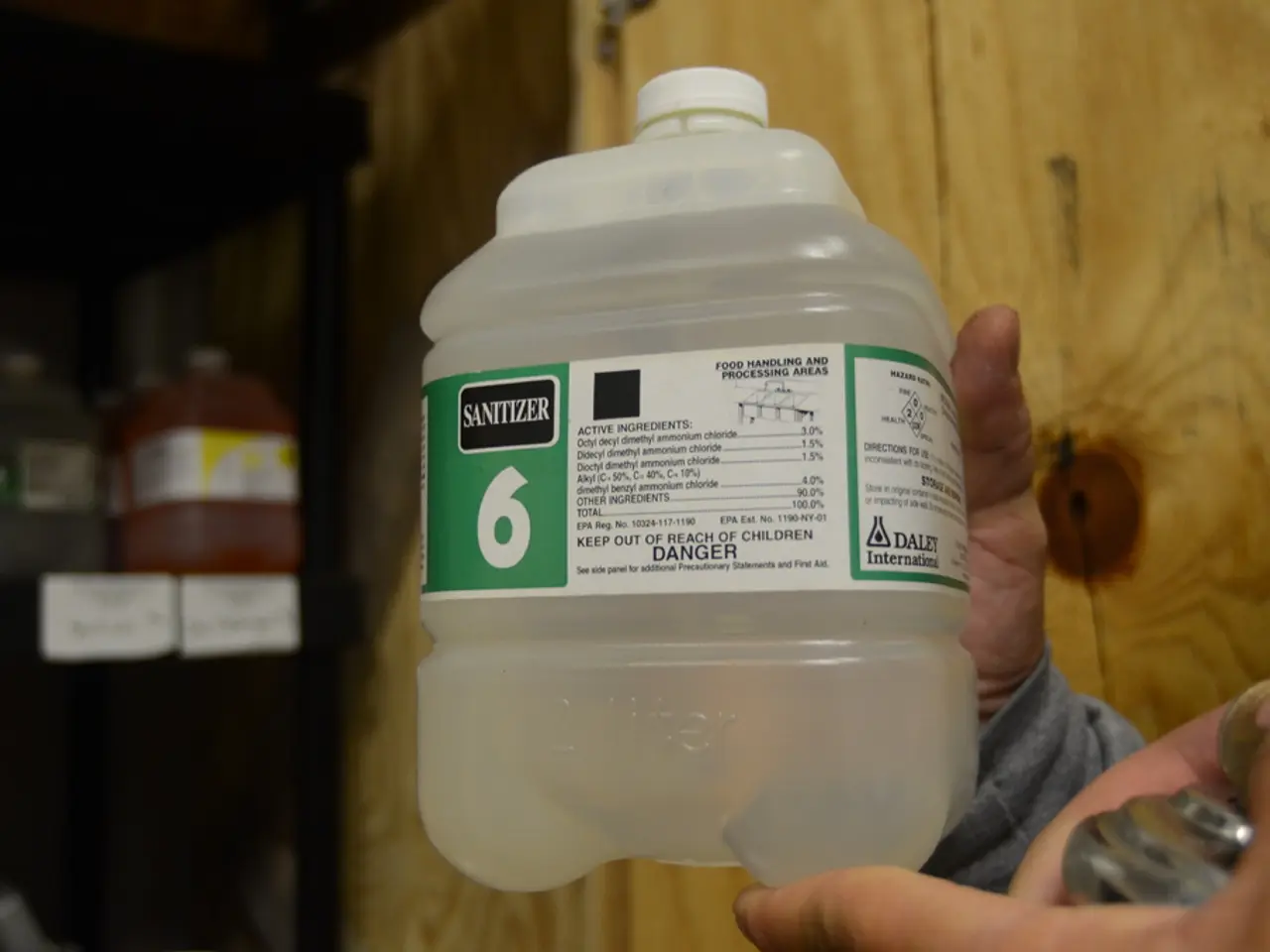Antibiotics not effective for treating stomach flu; essential factors to consider
In the realm of common illnesses, gastroenteritis, often colloquially known as 'stomach flu', is a prevalent issue that affects millions worldwide. This article aims to shed light on the differences between viral and bacterial gastroenteritis, the importance of hydration, and the appropriate use of antibiotics.
Firstly, it's essential to understand that viral gastroenteritis, typically caused by viruses such as norovirus and rotavirus, does not respond to antibiotics. Antibiotics target bacteria, not viruses, and their use in viral cases is not beneficial. Instead, those suffering from viral gastroenteritis should focus on replenishing lost electrolytes and fluids. Water, broths, fruit juices, sports beverages, and oral rehydration solutions can all aid in this process.
On the other hand, bacterial gastroenteritis, also known as food poisoning, may sometimes require antibiotics, but only if the infection is confirmed or in severe cases. Several types of bacteria, including Campylobacter, Salmonella, and Shigella, can cause food poisoning. However, most cases of bacterial gastroenteritis are mild and self-limiting, and empiric use of antibiotics is often avoided to prevent antibiotic resistance.
Measures to prevent both viral and bacterial gastroenteritis include maintaining high levels of hygiene and sanitation, washing hands regularly, disinfecting surfaces, and washing fabrics. In some cases, vaccines for rotavirus are available to help protect against viral gastroenteritis.
It's important to note that symptoms of severe dehydration, such as frequent dizziness, producing little or no urine, drowsiness or losing consciousness, require immediate medical attention. In such cases, a doctor may prescribe antibiotics for bacterial gastroenteritis if necessary.
In summary, viral gastroenteritis is primarily treated with supportive care—such as hydration, rest, and a bland diet—to relieve symptoms and prevent dehydration. Bacterial gastroenteritis may sometimes require antibiotics, but only if the infection is confirmed or in severe cases. Misuse of antibiotics in viral cases is not helpful and may cause antibiotic-associated diarrhea and microbiota disruption.
References:
- Centers for Disease Control and Prevention. (2021). Antibiotic/Antimicrobial Resistance. [online] Available at: https://www.cdc.gov/drugresistance/biggest-threats.html
- National Health Service. (2021). Gastroenteritis (stomach bug). [online] Available at: https://www.nhs.uk/conditions/gastroenteritis/
- Mayo Clinic. (2021). Food poisoning. [online] Available at: https://www.mayoclinic.org/diseases-conditions/food-poisoning/symptoms-causes/syc-20355702
- World Health Organization. (2021). Antibiotics: Resistance and Intelligent Use. [online] Available at: https://www.who.int/news-room/fact-sheets/detail/antimicrobial-resistance
- Centers for Disease Control and Prevention. (2021). Norovirus. [online] Available at: https://www.cdc.gov/norovirus/about/index.html
- Science has identified that viral gastroenteritis, including conditions caused by norovirus and rotavirus, does not yield to antibiotics, as these medications target bacteria, not viruses.
- Regarding hydration and fluid replenishment, water, broths, fruit juices, sports beverages, and oral rehydration solutions are all beneficial in combating viral gastroenteritis and preventing dehydration.
- While antibiotics are ineffective in addressing viral gastroenteritis, they might be essential for bacterial gastroenteritis, known as food poisoning, depending on the severity of the infection.
- Bacteria like Campylobacter, Salmonella, and Shigella are among those that can cause food poisoning.
- In mild instances of bacterial gastroenteritis, antibiotics are typically avoided to prevent the development of antibiotic resistance.
- Reinforcing good hygiene practices, including regular hand washing, disinfecting surfaces, and washing fabrics, can help deter both viral and bacterial gastroenteritis.
- Vaccines for rotavirus are available in some cases to safeguard against viral gastroenteritis.
- In scenarios of severe dehydration, symptoms such as recurrent dizziness, diminished or absent urine production, sluggishness, or loss of consciousness necessitate immediate medical attention.
- In circumstances requiring medical intervention, a physician might endorse antibiotics for bacterial gastroenteritis if the infection is confirmed or the condition is severe.
- In general, viral gastroenteritis treatment revolves around providing supportive care, encompassing hydration, rest, and a bland diet, to alleviate symptoms and stave off dehydration.
- The inappropriate use of antibiotics in viral cases can lead to antibiotic-associated diarrhea and microbiota disruption.
- In the context of workplace wellness, promoting awareness and education about gastroenteritis, its causes, and prevention measures can help foster a healthier work environment.
- Chronic diseases and medical conditions, such as diabetes, immune deficiencies, and cancer, can exacerbate the impact of gastroenteritis, necessitating close monitoring by healthcare providers.
- Respiratory conditions, digestive health, eye health, hearing, mental health, and women's health are among the many medical areas that intersect with gastroenteritis, making it crucial to understand their interconnections for comprehensive healthcare.
- Therapies and treatments for various medical conditions, including fertility treatments, cancer therapies, and neurological disorder treatments, may also have an impact on the gastrointestinal system, necessitating close observation and management.
- Nutrition plays a pivotal role in gastrointestinal health, with proper dietary choices aiding in recovery from gastroenteritis and maintaining overall digestive health.
- With aging, changes in the gastrointestinal system, including a decrease in the number and diversity of beneficial gut bacteria, can impact the body's ability to ward off infections, making it essential to maintain proper nutrition and health practices to support overall gastrointestinal and health and wellness.




